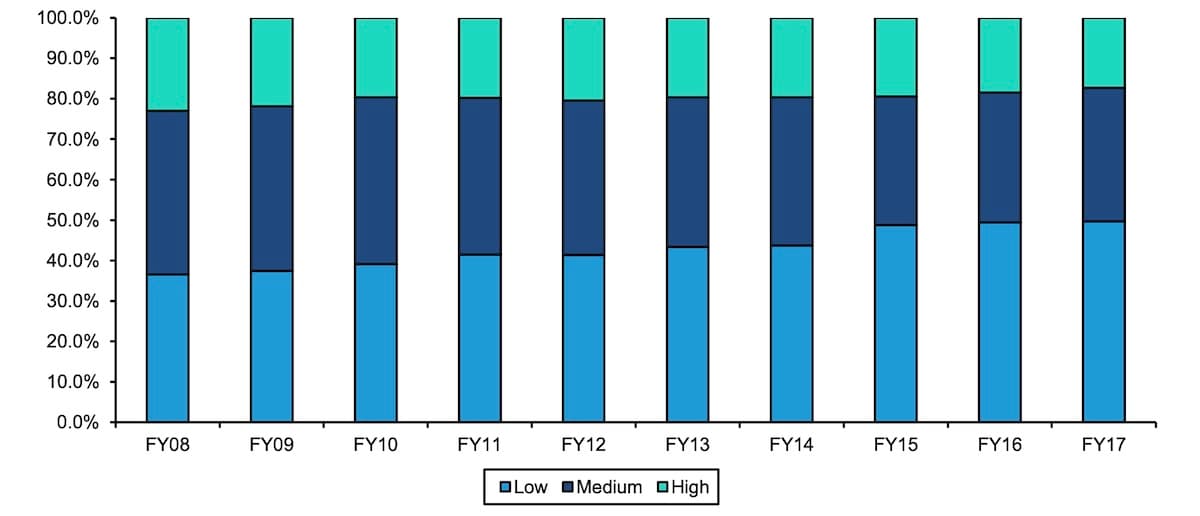India’s technology ecosystem faces the challenge of catching up with the global leaders in the emerging field of generative AI. Despite hosting one of the world’s largest startup ecosystems, the South Asian economy has yet to impact the fast-evolving AI landscape substantially. Currently, no Indian startups have emerged to compete with the established large language model leaders like ChatGPT, Bard, or Anthropic.
According to analysts at Sanford C. Bernstein, despite over 1,500 AI-based startups in India securing over $4 billion in funding, the country is still lagging behind in the race for AI innovation.
Numerous major startups in India have incorporated machine learning to improve various aspects of their business operations, and they deserve recognition for it. For instance, Flipkart, an e-commerce giant, utilizes machine learning to optimize the customer shopping experience, while Razorpay employs AI to combat payment fraud. Additionally, Vedantu, a unicorn ed-tech company, recently integrated AI into its live classes to make them more accessible and affordable.
Industry experts attribute the scarcity of AI-first startups in India to a lack of skilled workers in the nation’s workforce. However, analysts warn that introducing generative AI may replace several service jobs.
According to Bernstein analysts, India’s IT sector employs over five million people, including many low-end workers like BPO or system maintenance. Although AI is not yet at a level causing significant disruptions, the systems are improving rapidly.
Dev Khare, a Partner at Lightspeed Venture Partners India, warned that jobs and processes in enterprises such as market research, legal analysis, content production, financial analysis, and several IT services jobs could be affected because of Generative AI.
However, for India, this disruption also offers an opportunity. With over 40% of the country’s workforce employed in the agriculture sector, the rapid progress in this area poses a challenge. Similarly, automation may not be necessary in the manufacturing industry due to the abundant and affordable labor force.

The services sector gains the most from timely upskilling and resource optimization. Indian consultancy giants have already recognized this fact. Infosys, for instance, recently disclosed that it is working on multiple generative AI projects to address specific aspects of clients’ businesses. In contrast, TCS is exploring cross-industry solutions to automate content creation, code generation, copywriting, and marketing.
In response to the changing landscape, New Delhi has announced that India will not regulate the growth of AI, a departure from other countries’ approaches.
Last month, India’s Ministry of Electronics and IT stated that AI is a dynamic facilitator of the digital economy and innovation ecosystem. The government is leveraging its potential to offer personalized and interactive citizen-centric benefits through digital public platforms.
As established segments of India’s startup ecosystem remain quiet in the generative AI race, younger firms are taking the lead. Gan, which allows companies to repurpose videos on a large scale, TrueFoundry, which supports building ChatGPT using proprietary data, and Cube, which enables AI-powered customer support on social media, are among the frontrunners.
The surge of interest in generative AI has compelled nearly all venture funds in India to develop investment strategies in the emerging field.
Anandamoy Roychowdhary, a Partner at Surge, Sequoia India & Southeast Asia, countered the claim that Indian startups have only recently begun to delve into generative AI applications, pointing out that many have been working in this field for several years.
He said that it is undeniable that there has been a significant acceleration in project development and startup creation after the launch of ChatGPT. He also mentioned that the Sequoia India and SEA team has quickly recognized this trend and partnered with seven to eight AI companies across earlier Surge cohorts.
According to him, Sequoia India and SEA assess at least five companies in this field per week. Accel, a well-known venture capital firm that has been active in India for more than ten years, announced on Wednesday that AI is one of the two main focuses of its early-stage venture program’s new cohort.
However, Some founders are worried that AI startups might not prioritize developing their own large language models because of insufficient funding and a lack of conviction from investors to support high computing and other infrastructure costs.
Related Stories:
